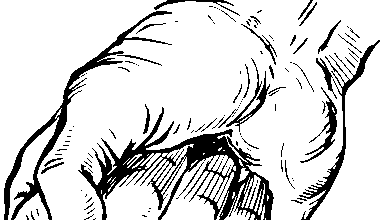Sleep and Pain Perception in Sports Injuries
Understanding the relationship between sleep and pain perception is pivotal for athletes recovering from sports injuries. Adequate sleep is crucial for physical recovery, particularly in managing pain. Research shows that sleep deprivation can amplify pain sensitivity, negatively impacting an athlete’s pain threshold. Poor sleep can lead to altered pain processing and increased discomfort from injuries. Furthermore, good quality sleep enhances cognitive function and overall mood, further assisting in effective pain management. Athletes often underestimate the influence of sleep on their pain perception, mistakenly thinking that sheer willpower can overcome discomfort. Addressing sleep hygiene is vital for improved recovery outcomes. Effective sleep strategies include establishing a regular sleep schedule, creating a conducive sleeping environment, and avoiding stimulants close to bedtime. Moreover, nutrition plays a role; specific foods can promote better sleep and consequently reduce pain perception. Incorporating relaxation techniques such as mindfulness and meditation may also facilitate deeper sleep. Ultimately, sleep quality is not only integral to recovery but also vital for preventing further injuries. Athletes should prioritize sleep as part of their recovery regimen. By enhancing sleep, pain perception may diminish, allowing for a smoother return to performance.
The impact of sleep on athletic performance extends beyond mere fatigue; it significantly influences pain perception during recovery from injuries. When athletes experience sleep loss, their bodies struggle to recover efficiently, which heightens their sensitivity to pain. A study published in the journal “Sports Medicine” indicates that athletes reporting less than optimal sleep quality have a diminished pain tolerance compared to well-rested individuals. Furthermore, cognitive impairments stemming from insufficient sleep can lead to poor decision-making regarding injury management. Inadequate sleep may exacerbate psychological stress, a factor known to amplify pain perception. Many athletes fall into the cycle where pain causes anxiety, which further disrupts sleep, creating a challenging feedback loop. By recognizing this interrelationship, athletes can take proactive steps to establish a healthy sleep routine, which includes winding down before bed and sleeping in a dark, quiet environment free from distractions. It is essential that sports professionals educate athletes about the significant consequences of neglecting sleep. Prioritizing adequate slumber not only enhances physical recovery but can also aid athletes in maintaining optimal performance levels when returning to their respective sports.
Strategies for Improving Sleep Quality
Enhancing sleep quality is crucial for athletes, especially during recovery phases following injuries. Many strategies can be employed to ensure restful sleep. First, establishing a consistent bedtime can undoubtedly improve sleep cycles. Athletes must aim to go to bed and wake up at the same time daily, even on weekends. Creating a relaxing bedtime routine, which might include reading or gentle stretching, signals to the body that it’s time to unwind. Additionally, the environment’s influence must be considered; a dark, cool, and quiet space can promote deeper sleep. Consideration of electronic device usage also plays a critical role; athletes should avoid screens for at least an hour before bedtime, as blue light exposure inhibits the production of melatonin, the sleep hormone. Furthermore, caffeine intake should be minimized later in the day to avoid disrupted sleep patterns. Regular exercise, although beneficial, should ideally be completed at least a few hours before bedtime so that it does not interfere with the ability to fall asleep. By proactively implementing these strategies, athletes can improve their sleep quality and positively influence pain perception during recovery.
Research indicates that athletes with superior sleep quality tend to report lower levels of pain perception, which is essential for their recovery. The biological mechanisms underlying this relationship are complex and multifaceted. One theory posits that sleep enables the body to regulate inflammatory processes, aiding in healing from injuries. Sleep allows for the release of growth hormones, which are vital for recovery and regeneration of tissues. On the other hand, sleep deprivation often results in higher levels of pro-inflammatory cytokines, which can exacerbate pain sensation. Additionally, serotonin, produced during sleep, moderates pain levels, illustrating the profound role of restorative sleep in pain modulation. It is clear that athletes struggling with their sleep should seek support, be it through personal wellness initiatives or professional guidance. Collaborative efforts from coaches, medical staff, and sleep specialists are crucial in addressing the sleep issues that arise amongst athletes. Overall, by improving sleep quality and understanding its implications on pain perception, athletes can significantly enhance their recovery journey, ultimately allowing them to return to their sports with improved resilience and performance levels.
The Role of Sleep in Mental Recovery
In addition to its effects on physical recovery, sleep plays a pivotal role in supporting mental well-being for athletes as they recover from injuries. Mental resilience is crucial during rehabilitation, and restorative sleep contributes significantly to this aspect. Poor sleep directly affects cognitive functions, leading to impaired focus, slower reaction times, and diminished decision-making abilities—all critical factors for an athlete’s performance. Furthermore, sleep deprivation can increase feelings of anxiety and depression, which can intensify perceptions of pain. To promote mental health, athletes should incorporate techniques such as cognitive behavioral therapy aimed at improving sleep quality. Strategies could involve reframing negative thoughts and practicing mindfulness to cope with stress and anxiety linked to pain and injury recovery. Creating partnerships with sports psychologists can also enhance cognitive frameworks surrounding injury recovery. By understanding how sleep influences mental recovery, athletes can better equip themselves to face the challenges during their rehabilitation process and minimize pain perception. Therefore, mental well-being and adequate sleep together create a conducive environment for faster recovery and optimal athletic performance.
Misinformation related to sports injuries often leads to misconceptions surrounding sleep and pain perception. Many athletes are led to believe that pain is an inevitable part of the recovery process and that they must simply push through it. However, understanding that quality sleep can alleviate pain perception is vital. Athletes should educate themselves on how sleep influences various pain pathways in the body. Injury management should incorporate discussions about sleep as a factor in recovery planning. It is imperative for athletes to recognize that the interplay between sleep, pain perception, and emotional health can greatly impact their rehabilitation timeline. Athletes can benefit from keeping a sleep diary to track their patterns and how they correlate with pain levels. This can highlight the importance of sleep in their training and rehabilitation process. Moreover, they should work towards developing a supportive environment that encourages open discussions about predicting and managing pain during recovery. By fostering knowledge and understanding in this area, athletes can achieve a more positive outlook on the recovery experience, overcoming obstacles more efficiently and effectively.
Conclusion: Sleep as a Pillar of Recovery
In conclusion, recognizing sleep’s pivotal role in pain perception during sports injury recovery can drastically alter athletes’ rehabilitation strategies. Educating themselves about sleep hygiene is essential for athletes who wish to enhance their overall recovery journey. The connection between sleep and pain perception should be increasingly emphasized in training programs and recovery protocols. Coaches and athletic trainers have a responsibility to integrate sleep education into their practice, supporting athletes in prioritizing rest. Personalized sleep strategies should be crafted to meet individual athlete needs, taking into account their specific situations and preferences. As sleep quality improves, athletes often report enhanced pain management, which leads to better performance outcomes upon returning to their sport. Ultimately, fostering a culture that prioritizes both sleep and recovery strategies will not only enhance athletic performance but will also promote physical and mental well-being among athletes. As the link between sleep and pain perception continues to receive attention in sports research, the hope is that future training regimens will include strong foundations built on the importance of quality sleep. Thus, prioritizing sleep preparation may pave the way for the athletes’ successful rehabilitation.
By acknowledging the intricate relationship between sleep and pain perception in sports injuries, athletes can embark on a journey of holistic recovery. The integration of quality sleep into their training is not just beneficial but essential for those determined to reach their full potential. Attention to sleep hygiene, mental health support, and self-awareness can create a profound impact on recovery timelines. Consequently, athletes must develop an understanding of their bodies, how recovery occurs, and the factors that influence pain during this process. By normalizing discussions about sleep, pain, and recovery, a more supportive environment is created where athletes can thrive. In this regard, they can attain optimal health, peak performance, and sustained success in their respective sports. As the research continues to evolve, it becomes clear that sleep duration and quality are critical components in rehabilitation. Therefore, taking time to rest genuinely equates to reconciling with athletes’ bodies, paving their path to recovery. The implications of improved sleep hygiene on both pain perception and overall athletic performance are expansive, emphasizing that sleep is truly a foundational pillar in sports recovery.


